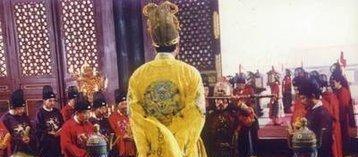Since the Wanli Dynasty, with the failure of the reform of Zhang Juzheng, the first assistant of the cabinet, the Ming Dynasty has gradually moved towards the road of decline, and the country is facing an unprecedented crisis. Outside, the rapid rise of the Jurchen tribe in the northeast posed a great threat to the borders of the Ming Dynasty, and there were endless party disputes and financial troubles that filled the government and the opposition, the house leaked in the overnight rain, and the local areas frequently encountered large-scale natural disasters, and in this desperate situation, the officials were still rampant, the people's lives were miserable, and the Ming Dynasty fell into the struggle line of life and death.
The accumulated shortcomings of the Ming Dynasty were unreservedly presented in the late Ming Dynasty, just like a terminal cancer patient, and the chances of being cured were slim. During the Chongzhen period, the mighty peasant movement swept across the country, and the ruling base of the Ming Dynasty basically collapsed, but the struggle of the Ming royal family to save the country and survive did not stop within the ruling class, they tried every feasible way, and finally moved the capital to Nanjing, which became a seemingly feasible solution.

Why Nanjing?
On the eve of Li Chuang's army entering Shanxi, the emperor had the intention of following the example of Emperor Gaozong of Song and Zhao Zhao's crown to cross south, and their destination was not Hangzhou with lakes and mountains but Nanjing, where the tiger was on the dragon pan.
Nanjing, the geographical location in all directions, or the rich Jiangnan fish and rice town, was once the seat of several feudal dynasties, there is a wide Yangtze River graben is a natural obstacle that is difficult for the northern cavalry to overcome, more importantly, here once wrote the glorious history of the Zhu Ming Dynasty, when the Hongwu and Jianwen dynasties were the capital, and later set as the capital by the Chengzu Emperor, so there is a set of administrative systems that can be used at any time. It can be seen from this that moving the capital to Nanjing has the advantages of heaven, time, location, and people, which is a wise choice for the last dynasty, and the Chongzhen Emperor is also a diligent prince who is eager to make a difference, and naturally hopes to be able to survive in peace.
The idea of moving the capital is very beautiful, but the reality is very bone-chilling, even the officials in the court have become the political resistance of the Chongzhen Emperor, of course, there are personal interests of the ministers, there are also reasons for shirking responsibility, and finally in the dispute between the civil officials group, Daming missed the excellent opportunity to move the capital to Nanjing, leaving the Chongzhen Emperor with the tragedy of hanging himself on the coal mountain.
Can moving the capital really save the country?
To know whether moving the capital can save the country, we must first understand why the Ming Dynasty lost the country? There are parties fighting with each other, there are foreign invasions, there is political decay, there are monarchical mistakes, and there are also people's livelihoods, and no matter which of these factors is expanded, it will have unimaginable consequences. The most central thing in this is the poor resolution of the people's livelihood problems, especially the fierce land annexation, which led to the expansion of class contradictions and triggered a large-scale peasant movement, just as Li Zicheng's sentence "Equal fields are exempt from endowment" can gather millions of peasant troops to overthrow the Ming Dynasty, behind the class contradictions is the loss of the hearts of the people in most countries.
The ruling class believed that there was another advantage to moving south, that is, to alleviate the severe financial crisis of the imperial court. The reason for the fiscal crisis at the end of the Ming Dynasty was similar to that of many last dynasties, that is, the tax revenue caused by land annexation in various places was seriously reduced, and the military expenditure on the frontier and civil strife was huge, and the imperial court could not make up the deficit with the strength of the whole country. When there were frequent wars in jiangbei, jiangnan rarely had war disasters, which became a strong support for the state finances at that time, and although the Jiangnan region was relatively rich, the people's resentment boiled under the heavy tax exploitation of the imperial court, and at the same time, the land annexation in Jiangnan was also very fierce, compared with the amount of the national financial deficit, the Jiangnan tax was simply a drop in the bucket, not enough to save the overall situation.
The accumulation of shortcomings of the Ming Dynasty was the result of decades or even centuries of accumulation, and it was the quantitative disorder of the top-down political system, and then the qualitative change of the economic system took the lead in collapsing. The official corruption that has become popular and the party that is fighting in the open and fighting has undoubtedly accelerated the demise of the dynasty, putting the peasant movement in the late Ming Dynasty on the agenda, and it is not something that can be easily solved by changing the king or moving a capital city, and even if the capital is successful, it is only a short extension of the Ming Dynasty's national left time, and the final outcome is predictable.